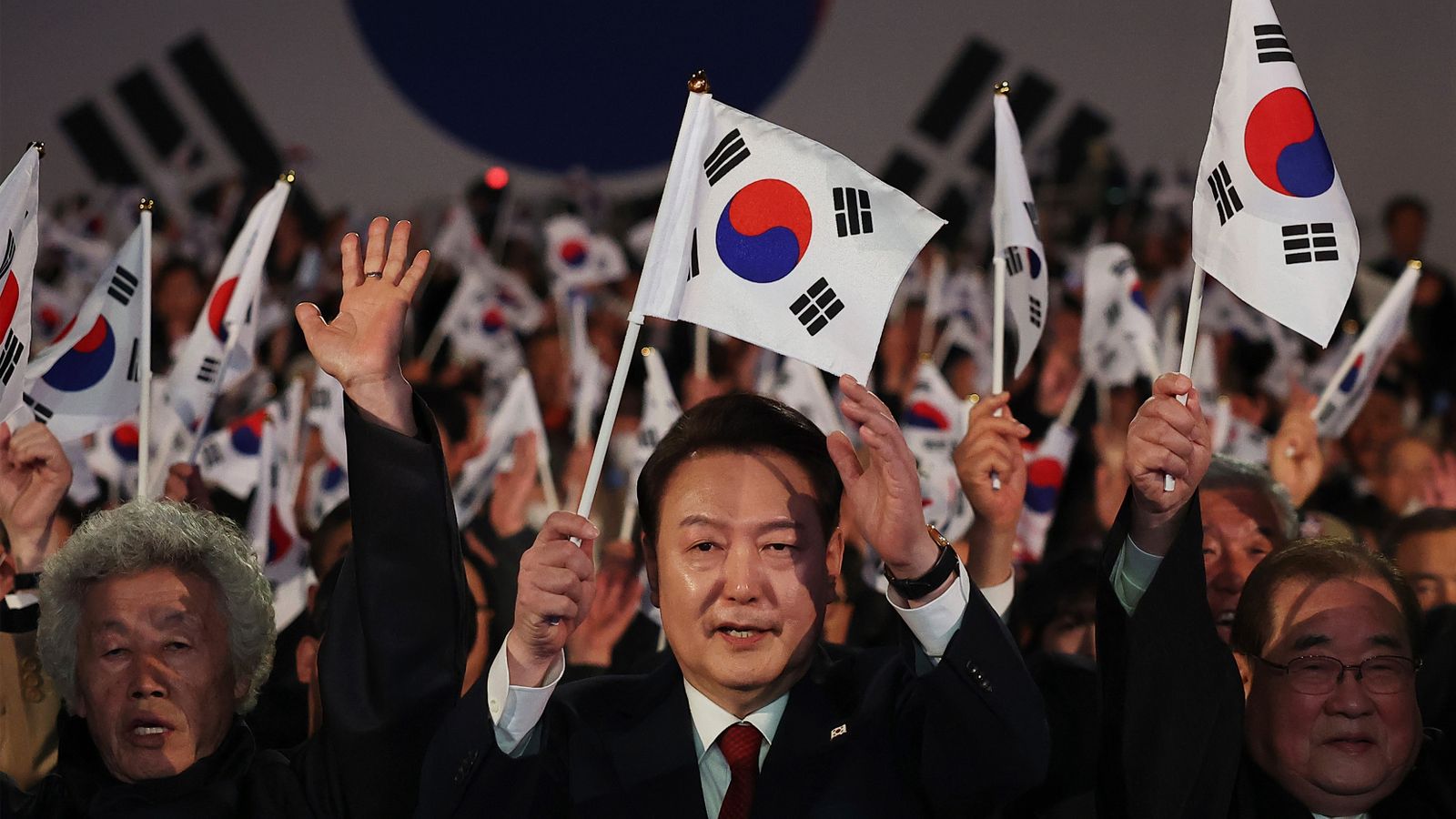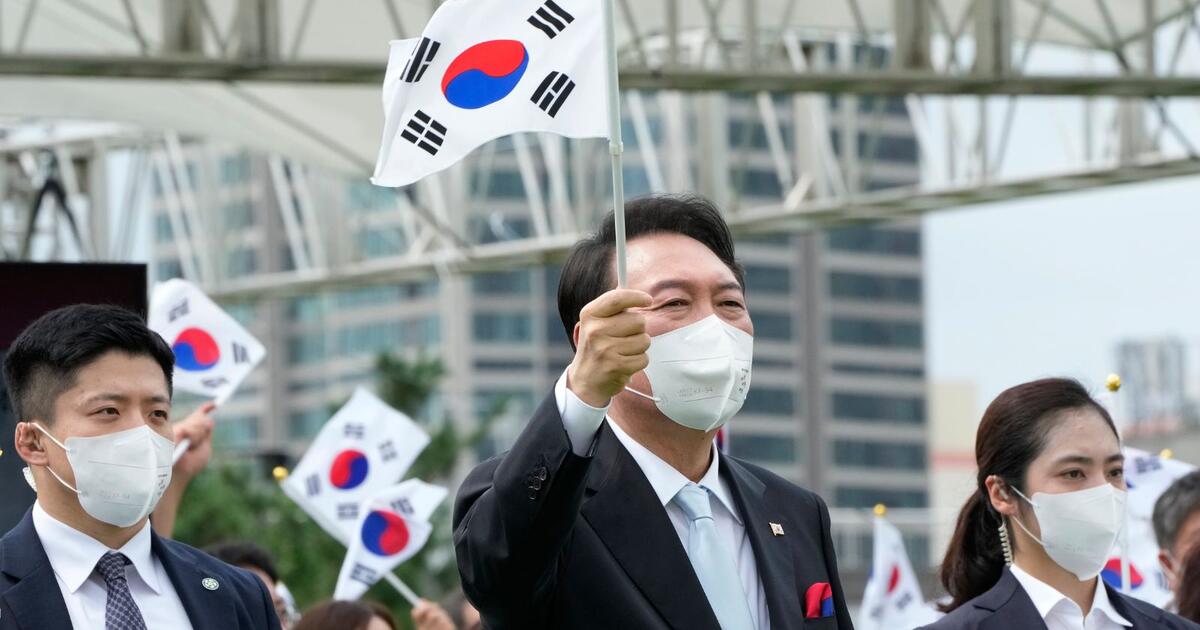In South Korea, the upcoming parliamentary elections are characterized as a showdown between President Yoon Suk Yeol and his rival, opposition leader Lee Jae-myung. The competition transcends the mere allocation of parliamentary seats, instead evolving into what locals refer to as “gladiator politics,” where supporters of each leader passionately seek victory.
Both Yoon and Lee lack widespread popularity, relying on staunch backers who either seek Yoon’s impeachment for abuse of power or Lee’s imprisonment for corruption.
Analysts perceive the elections as a choice between punishing Yoon or Lee, underscoring the contentious nature of South Korean politics.

South Korea’s Election Season (Credits: WSWS)
Despite South Korea’s global image as an exporter of cultural and technological products, domestic discontent persists due to economic stagnation, low birth rates, and growing inequality, particularly affecting the younger generation. These economic and social challenges fuel deep political divisions within the country.
The proliferation of online demagoguery through platforms like YouTube exacerbates societal polarization and hate speech. Incidents of violence, such as the stabbing of Lee by a disgruntled individual and an attack on a governing-party lawmaker by a disillusioned youth, underscore the intensity of political tensions in South Korea. Such incidents reflect a broader atmosphere of animosity and volatility in the political landscape.
Amidst fundamental economic and social crises, South Korean politics are more fragmented than ever. The electorate faces a choice between two polarizing leaders, each representing starkly different ideologies and visions for the country’s future.
Against a backdrop of economic uncertainty and social unrest, the parliamentary elections serve as a barometer of public sentiment, reflecting the electorate’s frustration and disillusionment with the status quo.























